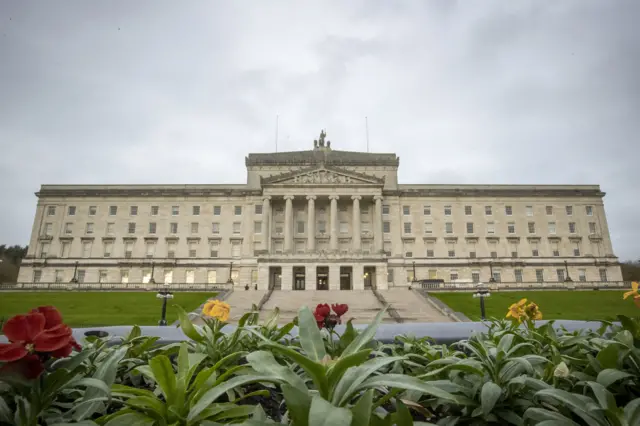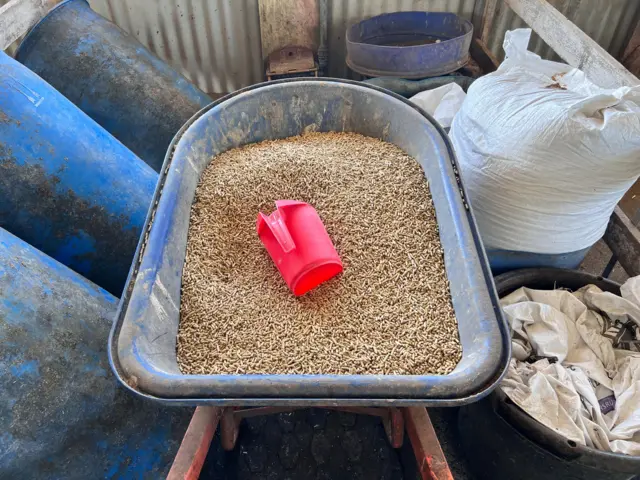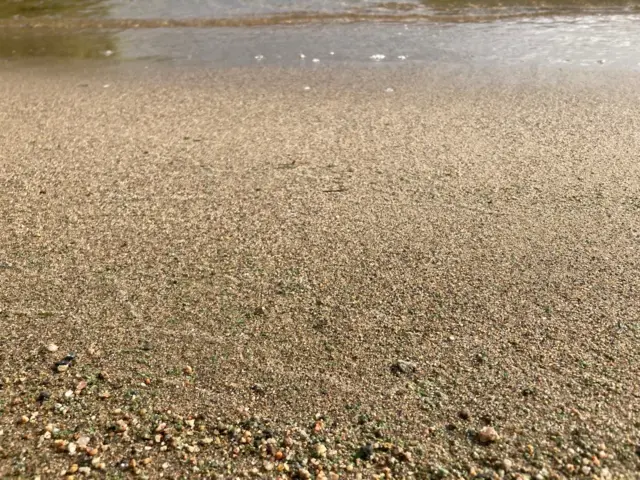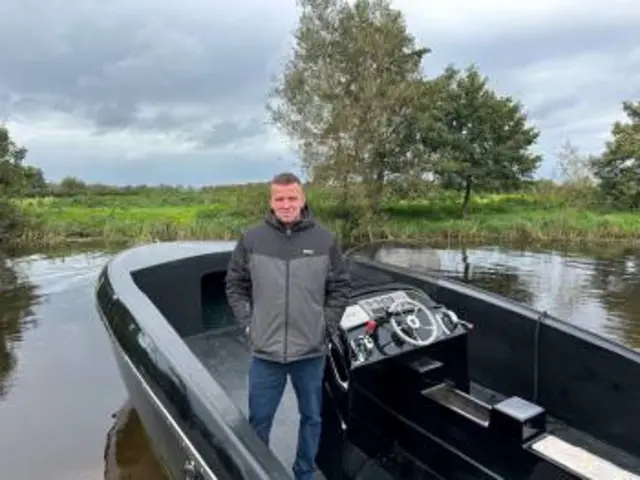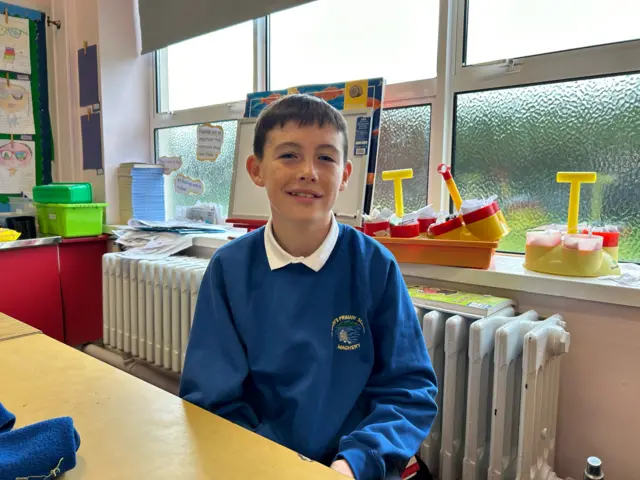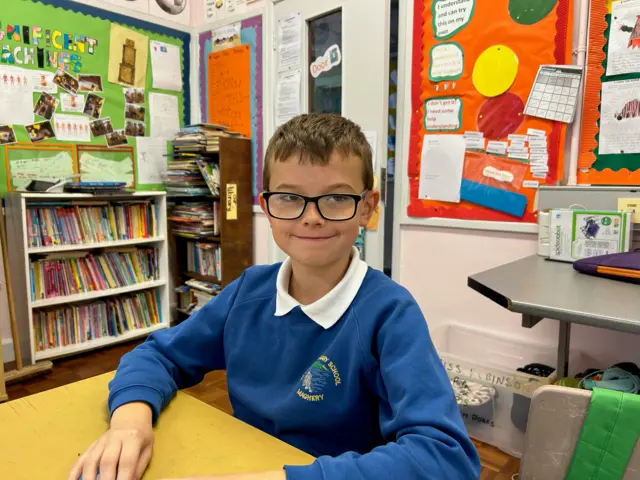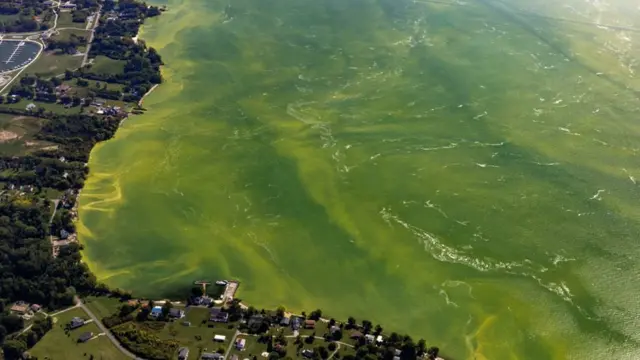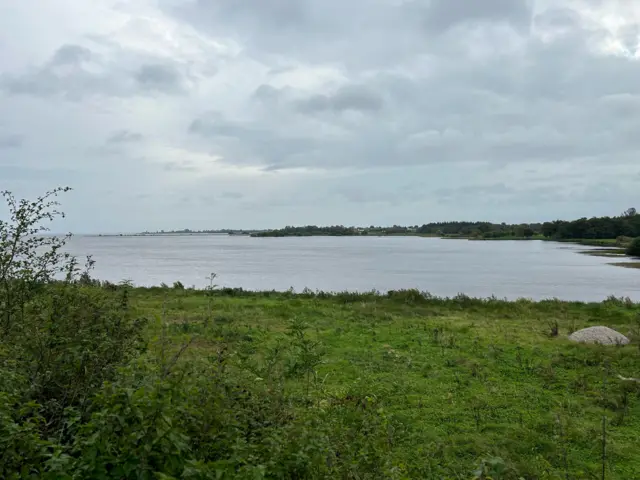What is blue-green algae?published at 13:51 BST 4 October 2023
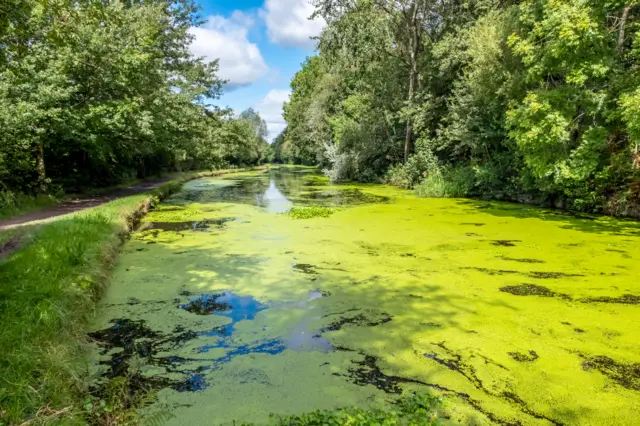 Image source, Getty
Image source, GettyDespite its name, blue-green algae is not actually alga. It's a type of bacteria called cyanobacteria, which inhabit fresh and coastal waters and need sunlight, nutrients and carbon dioxide to grow.
With abundant sunlight, still or slow-flowing water and the right amount of nutrients, they can form visible blooms. Those blooms then block the sun from reaching other plants in the water or use up oxygen in the water which, in turn, can suffocate fish.
It's important not to touch blue-green algae - it causes rashes or sickness if swallowed. For pets and other livestock it can be fatal.
Source: Daera, external

